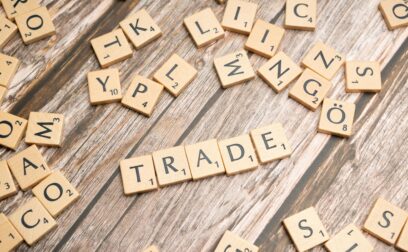TABLE OF CONTENTS
Loans
Equity
Grants
The U.S. Small Business Administration (SBA) offers loan programs to help small business owners buy commercial property for their businesses.
While SBA loans cannot be used to purchase rental property or investment properties, they can be used to buy commercial property where the business owner only needs to occupy 51% of the property.
The SBA 504 Commercial Real Estate Loan program and SBA 7(a) loan program are both popular for small businesses who wish to buy or maintain commercial property.
Read on to understand more about SBA loans for commercial properties, including what you can use them for, how to qualify for them and how to apply.
Page written by Kat Cox. Last reviewed on September 9, 2024. Next review due October 1, 2026.

SBA loans are considered a very safe form of business funding because they’re guaranteed by the U.S. Federal government. This means if the borrower defaults on the loan, the government will cover the cost of repaying it. This also means SBA loans are extremely popular, and relatively difficult to get.
There are two loans from the SBA that can be used for commercial property: SBA 504 and SBA 7(a). While both are backed by the U.S. federal government, administered by the SBA, and funded by financial institutions that are vetted by the SBA, there are some key differences between the two loans.
| Loan program | SBA 504 | SBA 7(a) |
|---|---|---|
| Purpose | To help small businesses fund major fixed assets, including real estate, commercial property projects and heavy equipment that will create jobs or promote business growth | Financial help for small businesses with special requirements, including short- and long-term working capital, to refinance current business debt and to purchase furniture, fixtures, and supplies |
| Interest rates | Calculated as a percentage above the U.S. Treasury Index | 4.25% - 4.75% max |
| Amount of money you can borrow | $5-$5.5 million depending on the project | Up to $5 million |
| Loan approval time | 65-75 days | 5-10 days |
| Repayment terms | 20 years for rental property, and 10 years for heavy equipment | 10-25 years |
You can learn more about the differences between the SBA 7(a) and SBA CDC/504 loan here.
The amount of money you’ll need to put down as a downpayment for the SBA loan depends on which type you get and how much you borrow. For a SBA 504 loan, you’ll need to pay at least 10% of the loan amount as a down payment. Some SBA 504 loans may require up to 20% of a down payment for startups or special purpose properties.
For a SBA 7(a) loan, the downpayment is usually 10% of the total you borrow. However, this depends on the lender you borrow from.
For both the SBA 7(a) loan and SBA CDC/504 loan, borrowers cannot use the money for investment properties, including apartment complexes or single-family homes. The loans are intended only for property that will be owner-occupied, meaning that the business will need to operate out of the property that they purchase.
However, most of these loans only say that the owner has to occupy 51% of the property, which means that the small business may be able to rent out the rest of the property to other businesses. If you’re planning to build a new commercial property, you may be required to occupy 60% of the building with your business.
It’s important to understand the terms of your loan and to operate within the rules of SBA lending, or you could default on your loan. Always double check with your lender to ensure that you’re following the rules.
Real estate loans for commercial properties tend to have shorter repayment terms than residential mortgages. Depending on the loan you get, your repayment term may be anywhere from 10 to 20 years.
For both the SBA 504 loan program and the SBA 7(a) program, you must meet the requirements that define what a “small business” is. You’ll also need to be a U.S.-based for-profit business that operates in an approved industry. The SBA also generally requires that you have a credit score of at least 620 and be in good financial standing, but this can vary with the loan type.
The SBA CDC/504 loan requires that businesses have a net worth that isn’t more than $15 million. You’ll also need to have a net profit of $5 million or less (after taxes) for the previous two years in business before you apply.
For SBA 7(a) loans, the requirements depend on which bank or financial institution you borrow from, but you’ll still need to meet the SBA’s small business criteria.
If your primary business is investment property or renting real estate, you won’t be able to use a SBA loan to fund your business. Also, because SBA loans are so popular, they can be difficult to qualify for.
There are several other options available for businesses who wish to operate with rental income as their primary source of income:
Also called a “traditional bank loan”, this type of funding is similar to personal loans like home mortgages in that you are given a lump sum of money to repay over a certain period of time (term) with interest. Most term business loans come from traditional banks or credit unions, and the repayment terms and interest rates will depend on your credit scores, annual revenue, time in business, industry, and a few other factors.
Like SBA loans, traditional loans can be somewhat difficult to get as a small business, especially if you don’t have a long credit history or annual revenue. However, they’re very secure forms of funding if you can get them, and often cost less over time than non-traditional loans or other forms of funding.
Much like a credit card, a business line of credit allows you to spend money when you need it and only pay interest on the money you use. You can also usually reuse the credit as you pay it off, making it a very flexible option for a business to use, especially in emergency situations. Unlike a business credit card, you can use a business line of credit for payments that usually require cash, like rent or mortgage payments, payroll, or to cover inventory or equipment costs.
A business line of credit may be easier to secure than a term loan, depending on the lender, and there are a number of companies that offer them to businesses that might not traditionally qualify. However, it’s important to understand the rates and terms, because lines of credit can get expensive quickly if you don’t make minimum payments and keep up on the interest.
Alternative loans usually look similar to traditional loans, in that a lender agrees to give you a lump sum that you pay back over time with interest. Unlike traditional loans, alternative loans tend to come from lenders that aren’t banks or credit unions, including online lenders. They also may be easier to get, often lending to businesses that don’t qualify for traditional loans, like those with poor credit scores, short time in business (including startups), or lower annual revenue.
But as with any loan that goes to a borrower with a higher credit risk profile, they tend to have higher interest rates and shorter repayment terms, which can make them expensive. Still, if you have a startup or new business that needs funding to get going, an alternative loan can be a faster option than a traditional loan, with many options offering short, online-only applications and quick funding times.
It’s important to know all the details of a loan and your qualifications before you apply. Ask yourself the following questions to help you determine which loan is right for you:
Will I be occupying at least 51% of the property I wish to purchase? If the answer is yes, you may qualify for a SBA loan for commercial real estate. If the answer is no, you may want to consider alternative financing.
How much money do I need? While both the SBA 7(a) and SBA CDC/504 loan programs can lend you as much as $5 million depending on the project, the SBA CDC/504 program won’t lend you less than $30,000.
Do I meet the qualifications for the loan? Beyond the minimum credit score and small business requirements, the SBA CDC/504 loan program has specific criteria, such as creating jobs.
To work out the monthly repayments of your loan, use our SBA loan calculator here.
Find your SBA loan with Swoop. Our app can guide you to the right loan by answering a few questions. Sign up today to get started.
As a B2B finance content specialist, Kat Cox's goal is to distill complicated financial issues into useful information for small business owners, to save them time they could be using to build their companies. Her work has been featured in Forbes and on financial health platform Nav.com. When she's not writing blogs, web copy, or fiction, Kat can be found walking her dog or singing karaoke in Austin, Texas.
Swoop promise
At Swoop we want to make it easy for SMEs to understand the sometimes overwhelming world of business finance and insurance. Our goal is simple – to distill complex topics, unravel jargon, offer transparent and impartial information, and empower businesses to make smart financial decisions with confidence.
Find out more about Swoop’s editorial principles by reading our editorial policy.
Related pages
Daire made it happen! There is no doubt that Swoop sped up the process and found lenders that worked to our time scale rather than the other way round
Hocque Figureoa
Joint owner, F45 Virginia
Swoop was actually very helpful in helping us get our initial fundraising in place. Swoop was able to connect us with investors, with grant financing options and debt financing options.
Viler Lika
Founder, SingleKey
Pedja was amazing. Super supportive, understanding of our needs and wasn't pushy at all. We've been going back and forth with Swoop for over a year inquiring about different financing options and they were patient until we were ready!
Chris Skeates
F45 Multi-studio owner
Join the 95,000+ businesses just like yours getting the Swoop newsletter.
Free. No spam. Opt out whenever you like.
Kingfisher Way, Silverlink Business Park, Newcastle upon Tyne, NE28 9NX, UK
View in Google Maps35 Bull Street, Lewis Building, Birmingham B4 6AF, UK
View in Google MapsAberystwyth Innovation and Enterprise Campus
Gogerddan Campus
Aberystwyth University
Ceredigion
SY23 3EE
Dogpatch Labs, The CHQ Building, Custom House Quay, Dublin, Ireland
View in Google MapsSuite 801, Level 8, 84 Pitt Street, Sydney, NSW 2000, Australia
View in Google Maps43 W 23rd St, New York, NY 10010, United States
View in Google Maps21 Dreyer Street, Cape Town, South Africa, 7708
View in Google MapsClever finance tips and the latest news
Delivered to your inbox monthly
Join the 95,000+ businesses just like yours getting the Swoop newsletter. Free. No spam. Opt out whenever you like.




